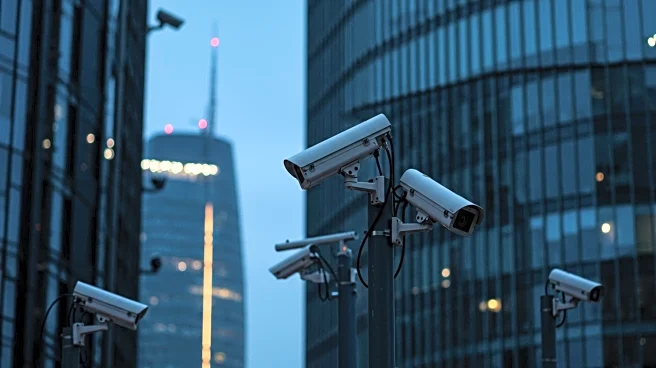What is the story about?
What's Happening?
The United Kingdom has expanded its use of facial recognition technology, deploying it extensively in public spaces such as festivals and outside supermarkets. This technology, which scans faces in real-time and compares them to a database of suspects, has been used by the Metropolitan Police to identify and apprehend individuals. Since its initial testing in 2016, the use of facial recognition has increased significantly, with millions of faces scanned in 2024 alone. The technology has been employed at major events, including the Notting Hill Carnival and various sports events, to enhance security measures. However, this widespread use has sparked criticism from rights groups, who argue that it treats citizens as suspects and lacks a legislative framework to protect individual rights.
Why It's Important?
The deployment of facial recognition technology in the UK has significant implications for privacy and civil liberties. Rights groups, such as Big Brother Watch, have raised concerns about the lack of legal safeguards and the potential for misuse of personal data. The technology's use in public spaces without clear consent or awareness from individuals raises ethical questions about surveillance and the right to anonymity. Additionally, the potential for racial bias in AI systems has been highlighted, with accusations of unfair targeting of minority communities. The situation underscores the need for a balanced approach that ensures security while protecting individual freedoms.
What's Next?
The UK government has indicated plans to draft a legal framework to govern the use of facial recognition technology, focusing on its application in serious crimes. However, recent authorizations for its use in new regions suggest continued expansion. The debate over privacy and security is likely to intensify, with human rights organizations advocating for stricter regulations and transparency. The outcome of this debate could influence the future of surveillance technology not only in the UK but also in other democratic nations grappling with similar issues.
Beyond the Headlines
The use of facial recognition technology raises broader questions about the balance between security and privacy in modern societies. As technology advances, the potential for surveillance to infringe on personal freedoms becomes a critical issue. The situation in the UK may serve as a case study for other countries considering similar technologies, highlighting the need for robust legal frameworks and public discourse on the ethical implications of surveillance.















